You can trust Cyclingnews
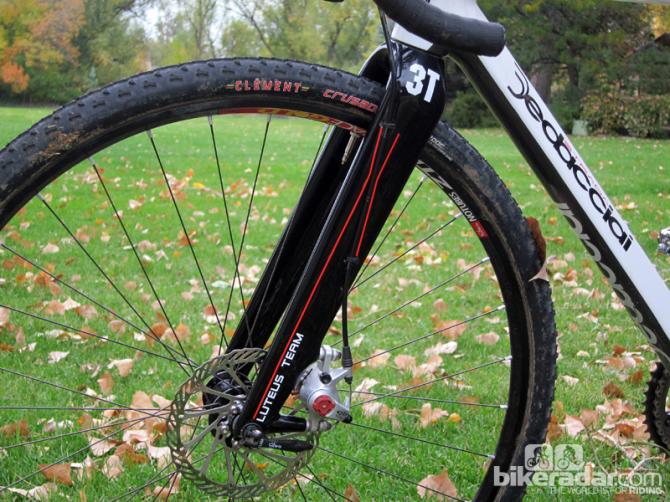
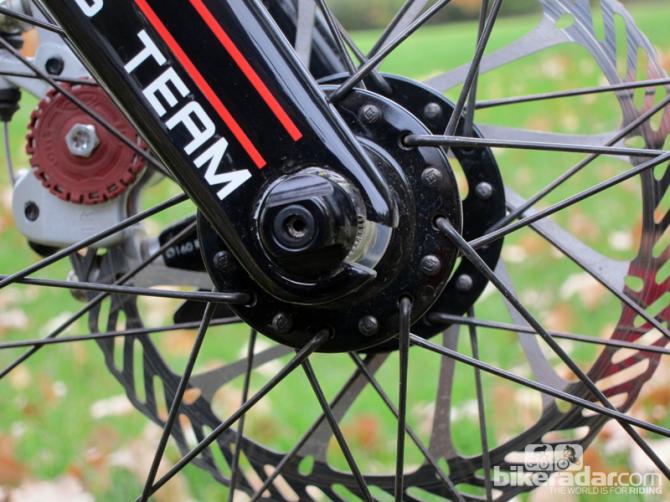
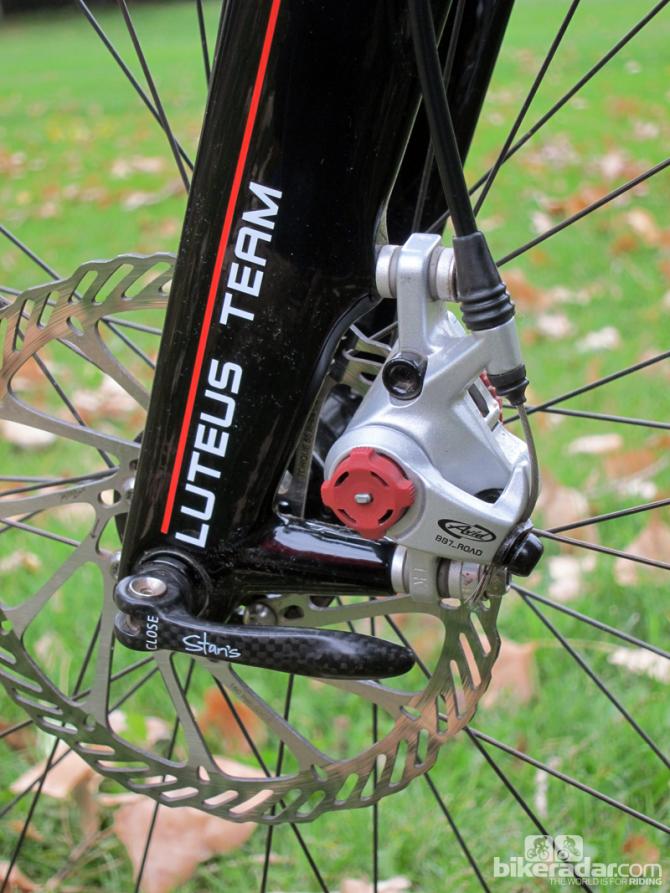
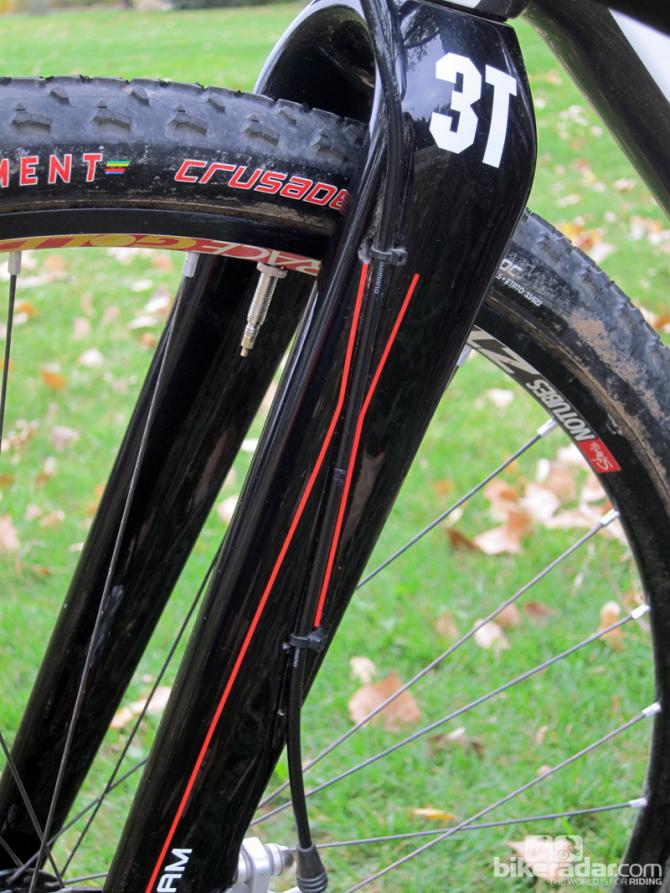
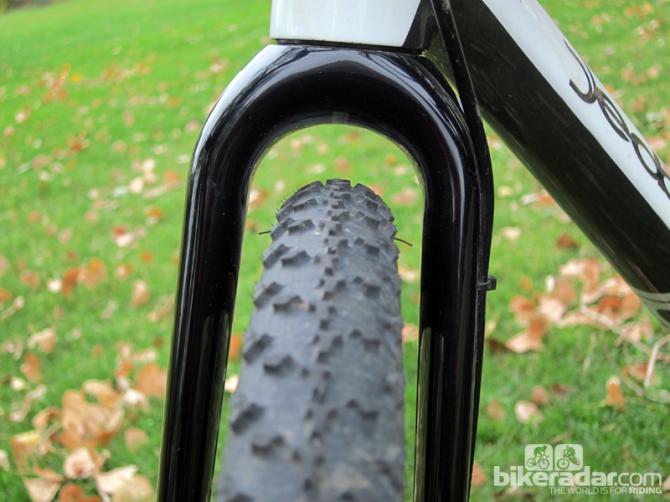
This article originally published on BikeRadar
First shown early in 2011, the 3T Luteus was one of the earliest high-end, all-carbon, disc-compatible cyclo-cross forks to debut on the market. As it turns out, it's also one of the best ones available with an impressive stout structure, a good ride quality, and smart disc-specific features that belie its frontrunner status.
Disc calipers impart very different forces on a fork than cantilevers and it's here where the Luteus seems to shine the brightest with impressively thorough forethought. Even when diving hard and braking late, the Luteus's sturdy carbon legs don't dive beneath you or twist at all, leaving you to simply concentrate on hitting your apex without having to re-adjust your line or make any additional handlebar inputs.
As the 3T Luteus's shape isn't constrained by conventional cantilever post locations, mud clearance near the rim and tire is also exceptionally good. There's nearly an index finger's worth of room all around and no protruding bits to which debris can adhere, thus realizing one of the greatest potential benefits of disc brakes vs. rim brakes, at least when the mud isn't axle-deep.
Despite all that surface area and the huge cross-sections, our Luteus Team test sample weighed in at just 459g – no heavier than top-end rim brake forks we've tested in the past.
3T has done a good job of tackling some of the details, too. The carbon fiber dropouts face slightly forward to prevent wheel ejection under hard braking and they're also lined with aluminum plates on both the inner and outer surfaces to combat wear. Cable routing is particularly tidy with a recessed channel running along the outside of the non-driveside leg and two zip-tie slots to keep everything in place.
Provided you're using black housing, it's nearly invisible once installed and leaves no sharp edges to snag clothing (or skin) as long as you've used flush cutters or a razor to trim the ends. Some people have criticized 3T for simply running the housing on the outside of the fork but it's certainly easier to deal with than an internal setup plus it's ready-made for hydraulic lines for those running converters or waiting for the new offerings from SRAM and Shimano.
Others instead criticize 3T's use of an aluminum sleeve and pre-installed starnut, which needs to be glued inside the carbon fiber steerer after it's cut with the supplied epoxy. True, this requires a little more time during the initial installation but we've always found this setup to be more secure than expanding plugs, it reinforces the carbon fiber steerer tube against crushing over a longer section of tube, and it doesn't induce any internal stress on the steerer.
That being said, we did take issue with a few minor things during our test period. For one, the post mount tabs are sized for 160mm rotors, which is overkill in our opinion for typical 'cross applications (but our minimum recommended diameter for road riding). In addition, riders seeking an ultra-plush fork might find the Luteus's muscular legs to be insufficiently cushy on rough courses (it's very well damped but not exactly pillowy-smooth), and at least for now, 3T is offering the Luteus exclusively with a tapered 1 1/8-to-1 1/2" tapered steerer and a 47mm rake.
Not surprisingly, the Luteus Team is also very expensive with a suggested retail price of US$560 although in fairness, that's inline with other top-end competition.
Otherwise, however, the 3T Luteus Team is about as perfect an option as we've found.
Price: US$560
Weight: 459g (uncut steerer, without reinforcement sleeve or starnut)
Cyclingnews verdict: 4 ½ stars
More information: www.3tcycling.com